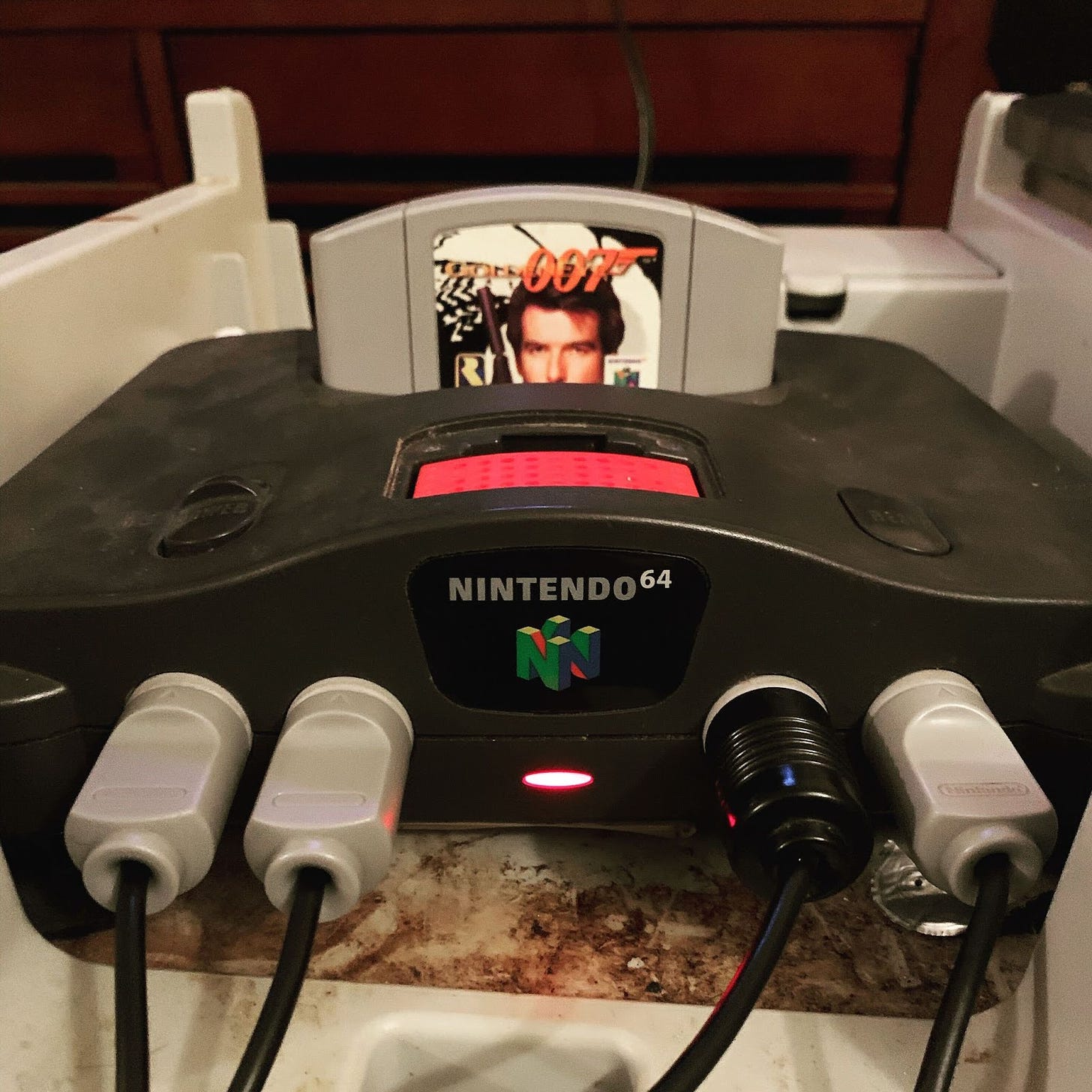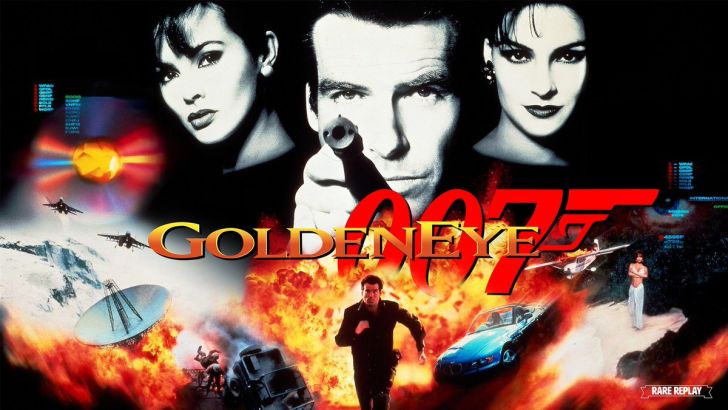Noah here. Yesterday a videogame announcement was made that reverberated widely through a certain demographic:

Ask any forty-something American man for their three favorite video games, and Goldeneye is sure to make the list. The 1997 Nintendo 64 title sold eight million copies and kept many more teenagers up all night as friends sat around playing the first-person shooter until the wee hours of the morning. The game came out four years after the MS-DOS version of DOOM and allowed up to four players to compete on a split screen across various levels with different characters and weapons.

The fact it’s coming back out on Xbox and Nintendo Switch means a small army of parents are preparing to school their children in the ways of 007.
Why is this interesting?
Goldeneye was obviously a great game, and an early entrant in the world of multiplayer first-person shooters, but it still resonates in a way few other games do. The game was a touchstone in the same way that Mario Bros, Zelda, and Contra were, despite coming out well after video gaming had established itself.
In the world of consoles, two popular references hit hardest. The first, well-documented in pop culture, is the Konami Code. All you need to say to someone of the right age is “up up down down left right,” and they’ll happily complete the series of button pushes required to earn yourself 30 lives in Contra. It’s even got its own Wikipedia page!
Typing the Konami Code into many websites brings up Easter Eggs. Here it is on Stripe.com giving a menu that allows you to play with the gradient.
The other reference is even more insidery and comes from Goldeneye. Ask anyone who played the game what their number one rule was, and they’ll give you the same answer: No Oddjob.
That’s a reference to Oddjob, the shortest of the game’s multiplayer characters. Anyone who played as Oddjob had an unfair advantage because his stature made him much more difficult to kill than other players. Put simply: if you played as Oddjob, you were an asshole. Remember, this was before people played online, so your three competitors were friends sitting next to you, and no one wanted to get thrown off the couch.
What’s fun about stories like the “no Oddjob rule” is that they happened in the days before the internet and social media made memes a regular part of culture. Unlike the Konami Code, which made its way around in magazines like Nintendo Power, “no Oddjob” seems like a much more organic instantiation of a meme—born out of shared annoyance of the one friend sneaking around with the tiny character. “No Oddjob” is more about necessity than most other memes of that particular moment.
As much as I try to avoid nostalgia, Goldeneye cuts deep. (NRB)
—
WITI x McKinsey:
An ongoing partnership where we highlight interesting McKinsey research, writing, and data.
2022 summer reading guide. Whether you’re in the mood for nonfiction, fiction, poetry, politics, psychology—or all of the above—we’ve got you covered. McKinsey’s annual summer reading guide features more than 100 picks from CEOs, Nobel Prize winners, editors-in-chief, economists, and other leaders. Check it out.
—
Thanks for reading,
Noah (NRB) & Colin (CJN)
—
Why is this interesting? is a daily email from Noah Brier & Colin Nagy (and friends!) about interesting things. If you’ve enjoyed this edition, please consider forwarding it to a friend. If you’re reading it for the first time, consider subscribing (it’s free!).



